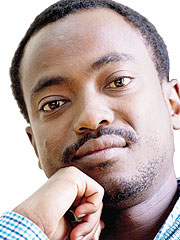POLISH-BORN American judge Theodor Meron on Tuesday read out the ICTR’s appeals bench ruling in the Military 2 trial, delivering what was largely expected of him; setting free two former top officers in the security organs that presided over the 1994 Genocide against the Tutsi.


POLISH-BORN American judge Theodor Meron on Tuesday read out the ICTR’s appeals bench ruling in the Military 2 trial, delivering what was largely expected of him; setting free two former top officers in the security organs that presided over the 1994 Genocide against the Tutsi.
They include Gen. Augustin Ndindiriyimana, the former head of the Gendermerie (the equivalent of state police) with Meron saying in the ruling that the Trial Chamber of the ICTR had erred in sentencing him to 11 years.
The UN-backed International Criminal Tribunal for Rwanda was set up in 1995 to try major planners of the Genocide against the Tutsi.
[SEE ALSO: ICTR will go down in history as a disgrace]
The other person who walked away is Maj. Francois-Xavier Nzuwonemeye, who commanded the much-feared reconnaissance battalion in Ex-Far, the armed forces of the former government.
Meron and co. also reduced to 15 years the initial sentence of Capt. Innocent Sagahutu, the man believed to be responsible for the death of 10 Belgian peacekeepers during the Genocide, among other atrocities.
The decisions follow a spate of other high-profile acquittals by the appeals panel led by Meron, with the simple argument that the Trial Chamber had erred in each of the cases.
It is not my intention to paint white the different organs of the International Criminal Tribunal for Rwanda (ICTR), especially since in some of the cases on appeal, prosecution either used foreign investigators alien to what happened in Rwanda, or worse still, persons implicated in the Genocide themselves.
One might argue that since the panel is always made up of seven judges, Meron cannot be solely blamed. However, a document leaked to the media last year by a Judge who has shared the bench with him elsewhere accused him of putting persistent and intense pressure on judges to allow suspects to go free.
This is further corroborated by cables released on whistleblower website Weakileaks, which indicated political pressure by a powerful country to have the now 83-year old named as the head of the UN court.
Some of the high profile convictions which were overturned by Meron include that of cabinet ministers in the genocidal government Justin Mugenzi (commerce – whose role in creating the radical splinter from the Liberal Party, which was later called PL-Power is well documented) and Prosper Mugiraneza for public service.
Meron also reduced the sentence of Théoneste Bagosora, the Apocalypse architect, a powerbroker who was very influential in the formation of the genocidal government that called itself ‘guverinoma y’abatabazi’.
Before that, the same judge had also overturned the conviction of Protais Zigiranyirazo or ‘Mr Z’, a brother to former First Lady Agathe Kanziga, and a core member of the influential group ‘Le Clan de Madame’ – Kanziga being the madame.
Meron, whose supporters will not hesitate to brandish his background as himself a survivor of the Holocaust, has done more than enough to add salt to injury, at least with regard to Genocide survivors.
Unfortunately, he has the mandate of the UN, which in 2012 added him a four-year term, this time as the head of the Residual Mechanism for International Criminal Tribunals, besides being the President of the Appeals Chamber at the Arusha-based court.
The Mechanism, which has until 2016 but can be extended, has among its attributions handling the appeals and tracking and prosecuting persons indicted by the ICTR and the tribunal for former Yugoslavia (ICTY).
Significantly, the same mechanism that Meron heads will determine the fate of achieves accumulated by both tribunals, which puts the writing on the wall for Rwanda with regard to her request to take custody of the ICTR archives.
Now, among the key tasks the Mechanism has, as far as Rwanda is concerned, is to ensure that the so-called ‘Big Fish’, including Genocide financier Félicien Kabuga, Protais Mpiranya (former commander of the vicious Presidential Guards) and the former Defence Minister Augustin Bizimana are brought to book.
But I fear that if these men are finally apprehended, chances are high they will get acquitted with Judge Melon in charge.
Genocide survivors in the former Butare prefecture (present-day Huye) should also brace themselves for the acquittal of Pauline Nyiramasuhuko and her son Arsène Ntahobali.
Meron is firmly in charge of this case.
The writer is an editor at The New Times.
Twitter: @kimenyif


